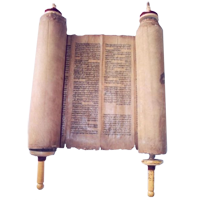- Montreal, Canada
- don@saintesecritures.org

Chapter 4 44 Now when the king came to Tyrus, three men that were sent from the senate pleaded the cause before him:45 But Menelaus, being now convicted, promised Ptolemee the son of Dorymenes to give him much money, if he would pacify the king toward him.46 Whereupon Ptolemee taking the king aside into a certain gallery, as it were to take the air, brought him to be of another mind:47 Insomuch that he discharged Menelaus from the accusations, who notwithstanding was cause of all the mischief: and those poor men, who, if they had told their cause, yea, before the Scythians, should have been judged innocent, them he condemned to death.48 Thus they that followed the matter for the city, and for the people, and for the holy vessels, did soon suffer unjust punishment.49 Wherefore even they of Tyrus, moved with hatred of that wicked deed, caused them to be honourably buried.50 And so through the covetousness of them that were of power Menelaus remained still in authority, increasing in malice, and being a great traitor to the citizens.
Chapter 5 1 About the same time Antiochus prepared his second voyage into Egypt:2 And then it happened, that through all the city, for the space almost of forty days, there were seen horsemen running in the air, in cloth of gold, and armed with lances, like a band of soldiers,3 And troops of horsemen in array, encountering and running one against another, with shaking of shields, and multitude of pikes, and drawing of swords, and casting of darts, and glittering of golden ornaments, and harness of all sorts.4 Wherefore every man prayed that that apparition might turn to good.5 Now when there was gone forth a false rumour, as though Antiochus had been dead, Jason took at the least a thousand men, and suddenly made an assault upon the city; and they that were upon the walls being put back, and the city at length taken, Menelaus fled into the castle:6 But Jason slew his own citizens without mercy, not considering that to get the day of them of his own nation would be a most unhappy day for him; but thinking they had been his enemies, and not his countrymen, whom he conquered.7 Howbeit for all this he obtained not the principality, but at the last received shame for the reward of his treason, and fled again into the country of the Ammonites.8 In the end therefore he had an unhappy return, being accused before Aretas the king of the Arabians, fleeing from city to city, pursued of all men, hated as a forsaker of the laws, and being had in abomination as an open enemy of his country and countrymen, he was cast out into Egypt.9 Thus he that had driven many out of their country perished in a strange land, retiring to the Lacedemonians, and thinking there to find succour by reason of his kindred:10 And he that had cast out many unburied had none to mourn for him, nor any solemn funerals at all, nor sepulchre with his fathers.11 Now when this that was done came to the king's car, he thought that Judea had revolted: whereupon removing out of Egypt in a furious mind, he took the city by force of arms,12 And commanded his men of war not to spare such as they met, and to slay such as went up upon the houses.





